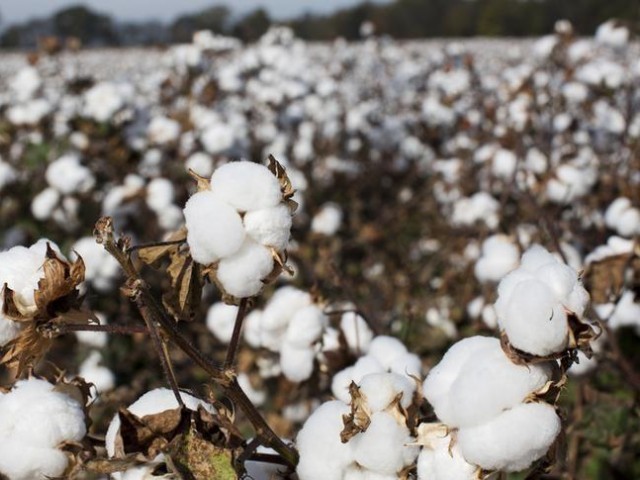
NA Speaker Asad Qaiser said this after a meeting of the sub-committee of the special committee which met with a member of National Assembly (MNA) Syed Fakhar Imam in the chair.
“The target of cotton production in the next four years is 20 million bales and for this support prices and other recommendations are under examination,” he said, pointing out that agriculture was pivotal to the country with 40 per cent of the economy dependent upon it.
The NA speaker, who was accompanied by Minister of Inter-Provincial Coordination Dr Fahmida Mirza and Imam in the press conference, said that the agriculture sector had been a victim of neglect despite being one of the country’s major employer and a major earner of foreign exchange.
Qaiser said cotton was a major crop in Punjab and Sindh and a key component of the agriculture economy. “However, cotton fields are decreasing with cultivators opting for other crops,” he noted.
He expressed concern over the reduction in the acreage for cotton crop and falling of production from 14.7 million bales to 10.7 million bales. He said the committee looked into ways to revive the production of cotton whose four big producers in the world were China, India, Brazil, and Pakistan.
The local demand for cotton was 15-16 million bales and Pakistan was importing 4-5 million bales to meet its domestic needs. Qaiser underlined the need to rectify policies to increase cotton production and introduce indicative price as was set for crops of wheat and sugarcane.
Fakhar Imam said the committee on agriculture products had engaged foreign experts, academia, and researchers to get their input for the increase in cotton production.
He mentioned that Bangladesh had increased its exports to $38 billion by selling its garments and cotton-based products. “Pakistan can do the same and take its exports to $40 billion from $23 billion through value addition.”
Pakistan was earning $3 billion from the export of rice and could further boost its exports of this crop, he said. “Wrong policies of the past resulted in plummeting of agricultural production. Now we need to put the sector back on track to attract investors and boost exports to regions of Europe, North America and countries in Africa and South America.”
He said the federal government had allocated Rs12 billion for the agriculture sector, adding an additional Rs1 billion would be given every year for agri-sector research. To a question, he said 800 seed companies were registered and a regulatory body oversees their affairs.
Dr Mirza said agriculture was a devolved subject and according to the last economic survey, the sector recorded negative growth.
She pointed out that the cotton growers were suffering losses and the price of cotton needed to be increased. The stakeholders of industry and agriculture should sit together to recommend steps to increase exports, she added.


1731735822-0/Copy-of-Untitled-(1)1731735822-0-165x106.webp)






1731740253-0/BeFunk_§_]_-(21)1731740253-0.jpg)







COMMENTS (1)
Comments are moderated and generally will be posted if they are on-topic and not abusive.
For more information, please see our Comments FAQ